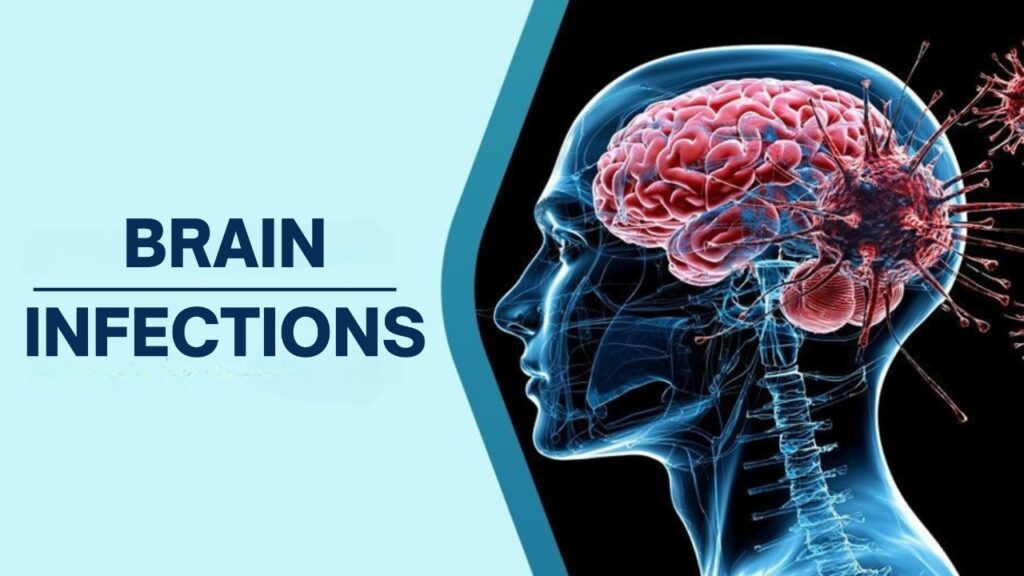
Our brains are one of the most complex and vital organs in our bodies. The control everything we do, from thinking and reasoning to regulating our bodily functions.
Unfortunately, like any other part of our bodies, our brains are susceptible to infection. Brain infections, also known as encephalitis or
meningitis, can be caused by a variety of viruses, bacteria, fungi, and parasites.
These infections can be serious and even life-threatening if not promptly diagnosed and treated.
Symptoms of brain infections can vary depending on the cause and severity of the infection. Common symptoms include fever, headache, confusion, hallucinations, seizures, and difficulty speaking or moving.
In severe cases, patients may experience loss of consciousness, coma, or even death.
It is important to seek medical attention if you or a loved one experience any of these symptoms, especially if they worsen over time or do not improve with common treatments like rest and over-the-counter pain relievers.
Diagnosing a brain infection can be challenging, as the symptoms can mimic those of other conditions, such as migraines, stroke, or even psychiatric disorders.
If a brain infection is suspected, your healthcare provider will likely order tests such as a CT scan, MRI, lumbar puncture, or blood tests to confirm the diagnosis.
These tests can help identify the specific cause of the infection, which is crucial for determining the most appropriate treatment.
Treatment for brain infections typically involves a combination of antiviral, antibacterial, antifungal, or antiparasitic medications, depending on the cause of the infection.
In some cases, supportive care, such as intravenous fluids, pain management, and physical therapy, may also be necessary to help manage symptoms and promote recovery.
It is important to follow your healthcare provider’s instructions carefully and complete the full course of treatment to prevent the infection from returning or worsening.
Preventing brain infections is key to protecting your brain health. Here are some tips to help reduce your risk of developing a brain infection:
1. Practice good hygiene: Wash your hands regularly with soap and water, especially before eating or preparing food, after using the restroom, and after touching animals or dirty surfaces. Avoid sharing personal items, such as towels, razors, or toothbrushes, with others.
2. Get vaccinated: Vaccines can help protect you against some of the most common causes of brain infections, such as meningitis and
encephalitis. Make sure you are up to date on all recommended vaccines, and talk to your healthcare provider about any additional
vaccines you may need based on your age, health, and travel history.
3. Avoid close contact with sick individuals: If someone you know is sick with a contagious illness, such as the flu or a cold, try to avoid close contact with them until they are no longer contagious. This can help prevent the spread of infection to others, including yourself.
4. Practice safe sex: Use condoms and practice safe sex practices to reduce your risk of sexually transmitted infections that can affect your brain health, such as HIV or herpes.
5. Protect yourself from mosquitoes and ticks: Mosquitoes and ticks can carry viruses and bacteria that cause brain infections, such as West Nile virus or Lyme disease. Use insect repellent, wear long sleeves and pants, and avoid outdoor activities during peak mosquito and tick activity to reduce your risk of exposure.
In conclusion, brain infections are serious and potentially life-threatening conditions that require prompt diagnosis and treatment.
By recognizing the symptoms, seeking medical attention, following your healthcare provider’s instructions, and taking steps to prevent infection, you can help protect your brain health and reduce your risk of developing a brain infection.
If you or a loved one experience symptoms of a brain infection, do not hesitate to seek medical help immediately. Your brain health is too important to ignore.
